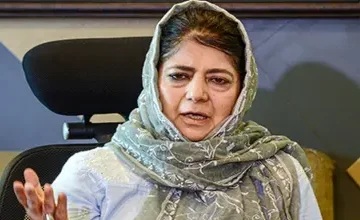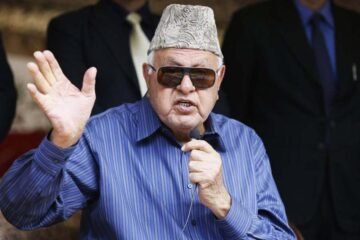Kashmir status change a step to establish majoritaian Hindu state: Indian analyst told Global Times

BEIJING, Sep 20 (APP):The Indian prime minister is trying to establish a majoritarian Hindu state by implementing the agenda of reworking the basic pillars of Indian Constitution such as secularism and federalism and revocation of special status of Indian Occupied Kashmir is a step in that direction.
“Indian prime minister is implementing the Rashtriya Swayamsevak Sangh (RSS)’s agenda of reworking the basic pillars of Indian Constitution, like secularism and federalism, in order to establish a majoritarian Hindu state. And revocation of Kashmir status is a step to establish a majoritarian Hindu state,”Prasenjit Bose, economist and political analyst based in Kolkaata, India told Global Times.
He said in his televised address after scraping the special status of Jammu and Kashmir, the Indian prime minister explicitly mentioned separatism, terrorism, nepotism and corruption and also suggested that it was the autonomy enjoyed by the state which spread anti-India sentiments and provoke violence.
Unfortunately, this grossly erroneous view has been ingrained in the thinking of the Bharatiya Janata Party (BJP) and its mentor, the Rashtriya Swayamsevak Sangh (RSS), since long.
Responding to a question, he said that it is felt by many that the recent move on Jammu and Kashmir is meant to distract public attention from a serious economic slowdown and ebbing economic opportunities at home.
The Modi government has been using militarist nationalism to its political advantage domestically since long, including in the run-up to the 2019 general elections. Few others have hinted toward strategic concerns regarding the consequences of US troops drawdown from Afghanistan in the region.
“Whatever is the trigger, the domestic fallout is unlikely to follow the official script. Little was retrieved in terms of black money, much damage was done to the economy. This time there can be damaging political consequences. Besides, the decision may not stand judicial scrutiny,” he added.
About possible implication on the region and Indian internal society due to Kashmir status change, he said the special status of Jammu and Kashmir embodied in Article 370 came from a covenant between the Indian leadership and the rulers of the province after India’s independence. It was the condition on which Jammu and Kashmir acceded to the Indian Union in October 1947.
Although there has been much erosion of the original autonomy accorded to the state over the years, the recognition of the state’s special status through Article 370 has enormous constitutional, historical and sentimental value.
The constitutionality of the presidential order and the legislations enacted in the Indian parliament, through which Jammu and Kashmir’s autonomous status was revoked and the state bifurcated into two union territories, have been widely questioned, he added.
Bose remarked that politically, the move has been divisive, to say the least. While the Hindu-majoritarian opinion celebrated the demise of Article 370, all mainstream political parties in Jammu and Kashmir were opposed to the move and many opposition parties in the Indian parliament have also opposed it.
He said the imposition of curfew, house arrest of political leaders and the communications black-out have hurt the ordinary people and added, far from ushering in peace and development, this is likely to cause further alienation of the people.
Bose opined that if the mainstream political parties in Jammu and Kashmir, who abide by the Indian Constitution, are repressed and marginalized, it will end up strengthening the separatist position and lead to an escalation of hostilities and violence. That will be against India’s fundamental interests.
The analyst said that India’s interests are best served through a restoration of peace and dialogue with the stakeholders in Jammu and Kashmir. “Problems with our own people cannot be solved through coercive military means. There has to be a democratic political process. The present step by the Modi government is not in that direction.”
Competitive militarism and terrorism are the biggest enemies of peace and stability in South Asia. Events over the past few years have only contributed to the escalation of conflicts, rather than the peaceful and diplomatic resolution. There is need for deep introspection, on all sides, he said.
On prospects for China-India relations after Kashmir status change, he said the decision to revoke the special status of Jammu and Kashmir has not been an unanimous one in India’s parliament. Many opposition parties outside Jammu and Kashmir unequivocally supported the political parties based in Jammu and Kashmir in their opposition to the central government’s move on Article 370. External interference on the matter will only vitiate the domestic political environment.
“As a responsible power and neighbor of both India and Pakistan, China can play a constructive role in advising restraint on all sides and advocate peaceful resolution of all disputes,” he concluded.










